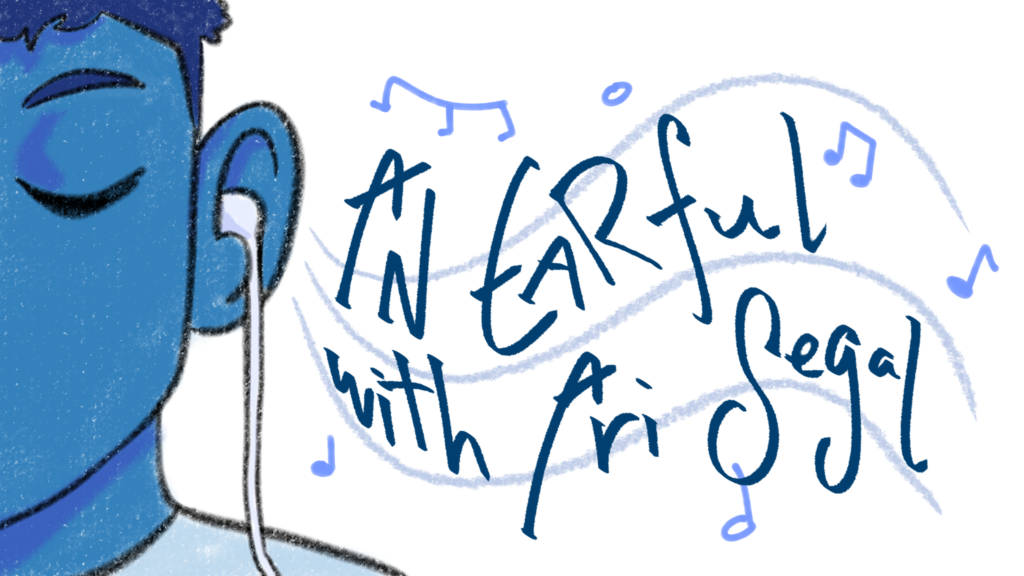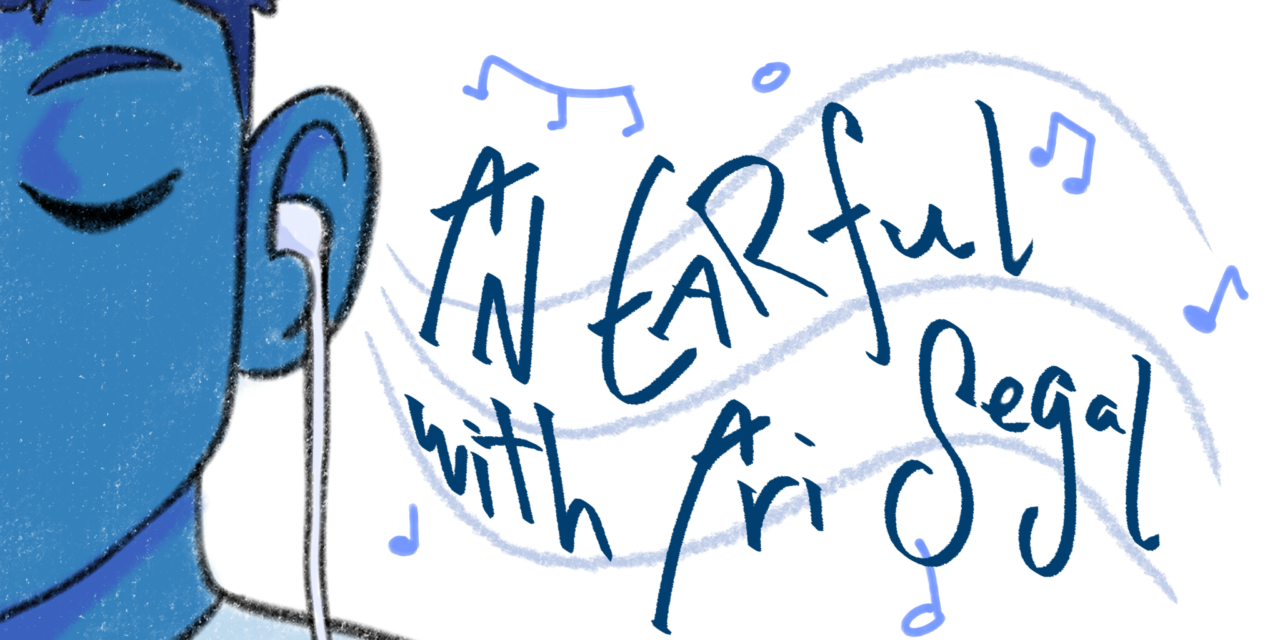
(Ha-tien Nguyen/Podcast Editor)
At the height of “Beatlemania,” The Fab Four found themselves at the center of a town hall Q&A-style event in front of their ravenous young fans.
The year was 1964. The Beatles had already conquered the United States with four studio albums under their belt and their performance on “The Ed Sullivan Show” earlier that year, all while being in the production stage of their film debut of their comedy musical “A Hard Day’s Night.”
Now, The Beatles found themselves at Twickenham Film Studios in London, where their young fans would probe about seemingly banal aspects of each of the four young men’s personal lives.
An audience member asked a cherubic Paul McCartney, “Paul, could I have your age, height, and when is your next record gonna be?” with the air of a doctor performing a routine check-up.
Another woman plaintively asked John Lennon, “John, why did you have to get married?” Lennon tried his best to diffuse the sheer awkwardness of the question.
But, amidst the mind-numbing questions, someone asked George Harrison, the lead guitarist, “What do you and Ringo do while John and Paul write songs?”
Harrison took it like a mensch, writing the question off with his sarcastic response, “Uh … we play marbles.”
He cracked a slight grin, but beneath the facade was an artist yearning for greater internal creative power within the supergroup that has been known perennially for lyrics often credited to the Lennon-McCartney partnership. The young fan’s question has aged like milk, but at the time, it was a reasonable inquiry from a knowledgeable fan who knew that McCartney and Lennon unilaterally controlled the band’s sound.
At the time of this recording, the stars from Liverpool, United Kingdom were undergoing a radical metamorphosis. They would slowly start to test their mainstream British and U.S. audiences the following years with their folk-inspired “Rubber Soul” (1965) and later pull the rug out from under the music world with their psychedelic masterpiece “Revolver” (1966). Additionally, during this inflection point for the band and their official end to touring in 1966, Harrison would also prove his detractors wrong and take an increasingly crucial role in the band.
Decades after the band disbanded, Harrison ultimately rivaled the Lennon-McCartney partnership with his experimental song structures, introspective lyrics and obscure sources of inspiration. Despite his talent, Harrison was still often viewed merely as an accessory, another one of The Beatles, siphoned off as simply “the quiet Beatle.”
Therefore, nearly 60 years after their U.S. TV debut on “The Ed Sullivan Show,” The Beatles’ history is still worth annotating by finding a few watershed moments for Harrison’s development within the band. Below, in chronological order, are five key Harrison compositions that paved the way for his eventual zenith within The Beatles.
- “Don’t Bother Me” (1963)
Harrison contributed his first original composition on The Beatles’ second studio LP “With the Beatles” (1963). The song was born out of frustration and a self-imposed challenge. Bedridden with a cold, Harrison attempted to write a song, recording a scattered melody on a nearby portable tape recorder in his bedroom.
“I don’t think it’s a particularly good song … but at least it showed me that all I needed to do was keep on writing, and then maybe eventually I would write something good,” Harrison wrote in his autobiographical memoir years later about the song.
The result was “Don’t Bother Me,” a rather forgettable midtempo rock song that clocks in at just below two and a half minutes. Like much of the Beatles’ earlier tracks, a predictable formula constrains the song though hints of ambition within Harrison’s first true artistic statement exist.
- “Taxman” (1966)
Equal parts Motown and proto-punk, the blazing “Taxman” is the opening song off of the Beatles’ seventh studio album “Revolver.” Though Harrison had sporadically penned other songs in their earlier albums, the fact that “Taxman” is the opening statement to the Beatles’ forthcoming album shows his increasing fruits of ambition within the band. Lyrically, “Taxman”covers the topical issue of an increased Progressive tax enacted by the United Kingdom’s dominant Labour Party.
“Should five percent appear too small / Be thankful, I don’t take it all,” Harrison sarcastically sings in the second verse in the persona of the British taxman. “’Cause I’m the taxman / Yeah, I’m the taxman.”
Though self-espoused liberals, the British’s distaste for the Labour Party tax hike in 1966 stemmed from Harrison’s distaste for where the money was actually going: towards military weapons for the gruesome Vietnam War. Harrison even went so far as to directly name then-United Kingdom Prime Minister Harold Wilson and Conservative Party Leader Edward Heath in the song, two forces behind the Progressive tax increase.
- “While My Guitar Gently Weeps” (1968)
The anthemic “While My Guitar Gently Weeps” is a testament to Harrison’s full embrace of Eastern philosophy, specifically that of Indian guru Maharishi Mahesh Yogi’s Transcendental Meditation.
“The Eastern concept is that whatever happens is all meant to be … every little item that’s going down has a purpose,” Harrison wrote in a historiography of the band. “‘While My Guitar Gently Weeps’ was a simple study based on that theory … I picked up a book at random, opened it, saw ‘gently weeps,’ then laid the book down again and started the song.”
Despite its spontaneous origin, the song felt poignantly written and exemplifies Harrison’s despair at the world’s inability to come together peacefully. The world is ripe for enlightenment and universal harmony, and yet, this sensation may never be realized. “While My Guitar Gently Weeps” avoids being an ostensibly theological song, especially in its major-key transcendent bridge.
“I don’t know why nobody told you / How to unfold your love / I don’t know how someone controlled you / They bought and sold you,” Harrison sings on the track.
“While My Guitar Gently Weeps” straddles pure melancholy and heroism, one of the Beatles’ masterpieces. Interestingly, the song also features an uncredited guitar solo from none other than Eric Clapton.
- “Here Comes The Sun” (1969)
Of course, no list of Harrison additions is complete without a song that has since become synonymous with summertime, the Beatles and sunshine.
After feeling disillusioned with the entertainment industry and the gridlock that ensued during the “Abbey Road” (1969) recording sessions, “the quiet Beatle” wandered over to fellow guitar soloist Clapton and rediscovered his passion for music. Without the constraints of “dopey accountants,” as he put it in his memoir, Harrison wandered around Clapton’s picturesque garden, and “Here Comes The Sun” immediately came flowing out of his acoustic guitar.
“Here comes the sun (Doo-d-doo-doo) / Here comes the sun, and I say / It’s alright,” Harrison sings in the chorus.
Today, “Here Comes The Sun” is by far the band’s most-known song and their only song to have surpassed a billion streams on streaming platforms. An impressive feat, especially for “the quiet Beatle” that was simply playing with marbles a few years prior.
- “Something” (1969)
Harrison’s “Something,” his first A-side single, is the second track off of the band’s landmark album “Abbey Road” and directly follows Lennon’s “Come Together” which opens the LP.
“Something” is their quintessential love composition, artistically elevated from the simple love songs that had propelled the Beatles to international stardom at the start of the decade — Harrison’s take on love is more opaque and demands a bit more attention from the listener.
Some have theorized that “Something” is about Harrison’s ex-wife Pattie Boyd, the inner workings of the universe or perhaps a combination of the two. The track’s universal applicability shines through on that magical and iconic bridge which connects the subdued verses.
“You’re asking me, will my love grow? / I don’t know, I don’t know,” Harrison belts into the void amid a swelling string arrangement. “You stick around, now, it may show / I don’t know, I don’t know.”
Then, Harrison delivers a sweet and penetrating guitar solo that melds into the third verse, where he further pronounces his love for a special someone — or something. Indeed, “Something” is a step up from his humble origins on “Don’t Bother Me.”
Ari Segal (he/him/his) (25C) is from Boca Raton, Florida, and majoring in Philosophy, Politics and Law (PPL). He is the Arts and Entertainment Editor at the Wheel. Outside of the Wheel, he is involved with the Emory Law School, Emory Conversation Project and the SPARK Mentorship Program. If you run into Ari, he is probably talking about music, listening to music or playing music on the guitar.







